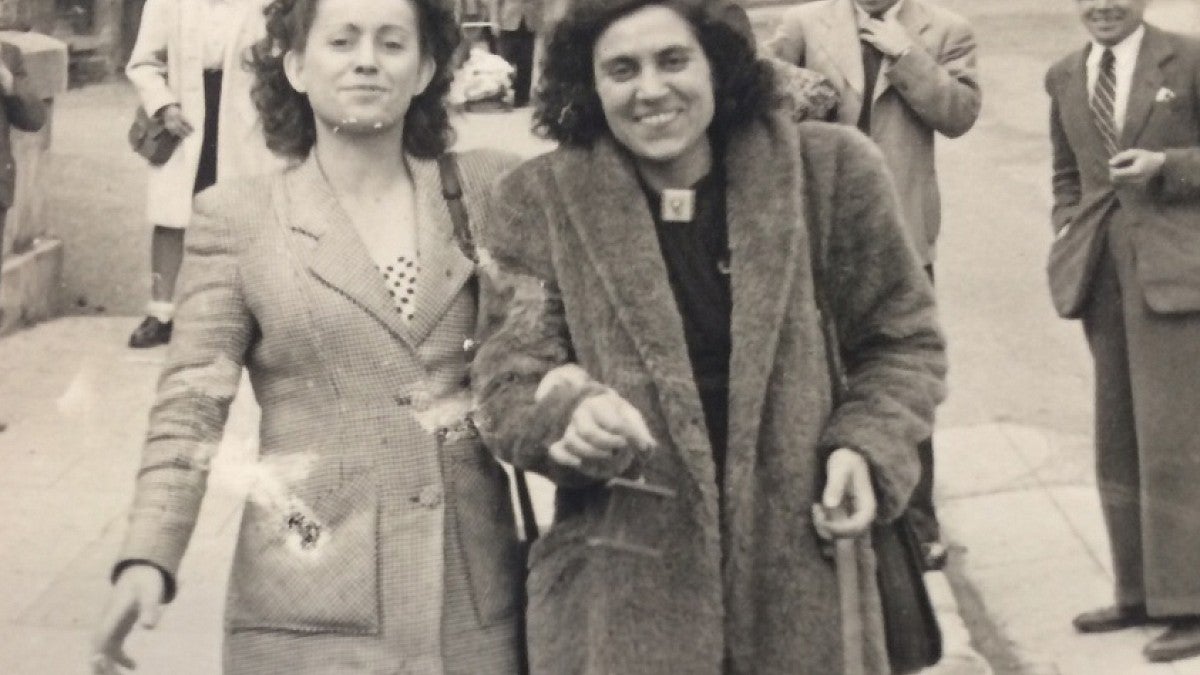Years ago, when Gina Herrmann began her decades-long oral history project examining the accounts of Spanish Civil War-era women activists, she had a somewhat romanticized notion of what her research would reveal.
“When I started the project, I was interested in this ideal of these women. I saw them picking up rifles and going to the front lines ... it was glamorous,” said Herrmann, an associate professor of Spanish in the Department of Romance Languages. “I was very quickly disabused of this notion. The oral history I was collecting were stories of imprisonment, torture, the loss of comrades, destroyed families.”
Within those raw narratives, Herrmann reveals how working-class communist women coped with and managed traumatic and life-threatening experiences brought about by political resistance and forced exile. The project, which continues today, recently earned Herrmann a fellowship from the National Endowment for the Humanities.
The award is supporting her work on her forthcoming book, “Voices of the Vanquished: Spanish Republican Women in War and Prison.” The award will allow her to spend the 2017-18 academic year writing about the testimonies she collected with Republican women survivors of the Spanish civil war, the Francoist penitentiary system, the French Resistance and deportation to Nazi concentration camps.
NEH fellowships support those pursuing advanced research that is of value to humanities scholars and general audiences. The award has a success rate of just 7 percent. Herrmann credits her success partly to having served on UO’s nominating committee for NEH summer stipends, short-term awards that support full-time work on a humanities project for a period of two consecutive months. The committee carefully reads and discusses applications and makes recommendations for the limited submissions award.
“Working on the nominating committee served as a great and prolonged tutorial on how to write a strong grant proposal,” Herrmann said.
In examining the the stories of Spanish women survivors of civil war and political incarceration, Herrmann hopes to shed light on the circumstances of many women political prisoners and refugees today. The stories have relevance to everyone from the women survivors of 1970s-era Latin American wars to women prisoners of today in the Middle East and Asia.
“I’m hoping that my project will be a case study that other scholars can read,” Herrmann said. “It has relevance looking both back toward the ‘70s and also into the future as we face one of the largest refugee crises since World War II (in Syria).”
Herrmann traces her initial intrigue in Spanish Civil War-era communism to a semester spent studying abroad as an undergraduate during the 1990s. That early interest grew more focused and evolved into a graduate school dissertation examining antifascist activism among Spanish women between the 1930s and 1960s. Later, a graduate school professor convinced Herrmann that the only way to really capture the stories she was seeking was to go straight to the source.
“She said to me, ‘Some of these women, whose stories you are interested in, are still alive, and you should go to Spain and interview them,’” Herrmann said. “I was very intimidated. I thought, ‘How am I going to meet them?’ ‘What am I going to say to them?’ ‘How would they receive me?’”
Herrmann overcame those initial inhibitions and has spent the ensuing two decades conducting interviews and refining her expertise and her skills as an oral historian, seeking out advanced training at the Oral History Research Institute at Columbia University.
“When people offer to share their stories with you they catch on very quickly as to whether you are genuinely engaged,” Herrmann said. “Being an oral historian requires a love of storytelling and a willingness to ask difficult questions, but also to have a good internal compass to know what can be asked or can’t be asked. For example, in recent years I have felt comfortable enough with some women survivors to be able to broach, with care, the topic of sexual violence in prison.”
Herrmann is currently on sabbatical and will return to the UO in fall. She will complete “Voices of the Vanquished” in 2017-18.
—By Lewis Taylor, University Communications


